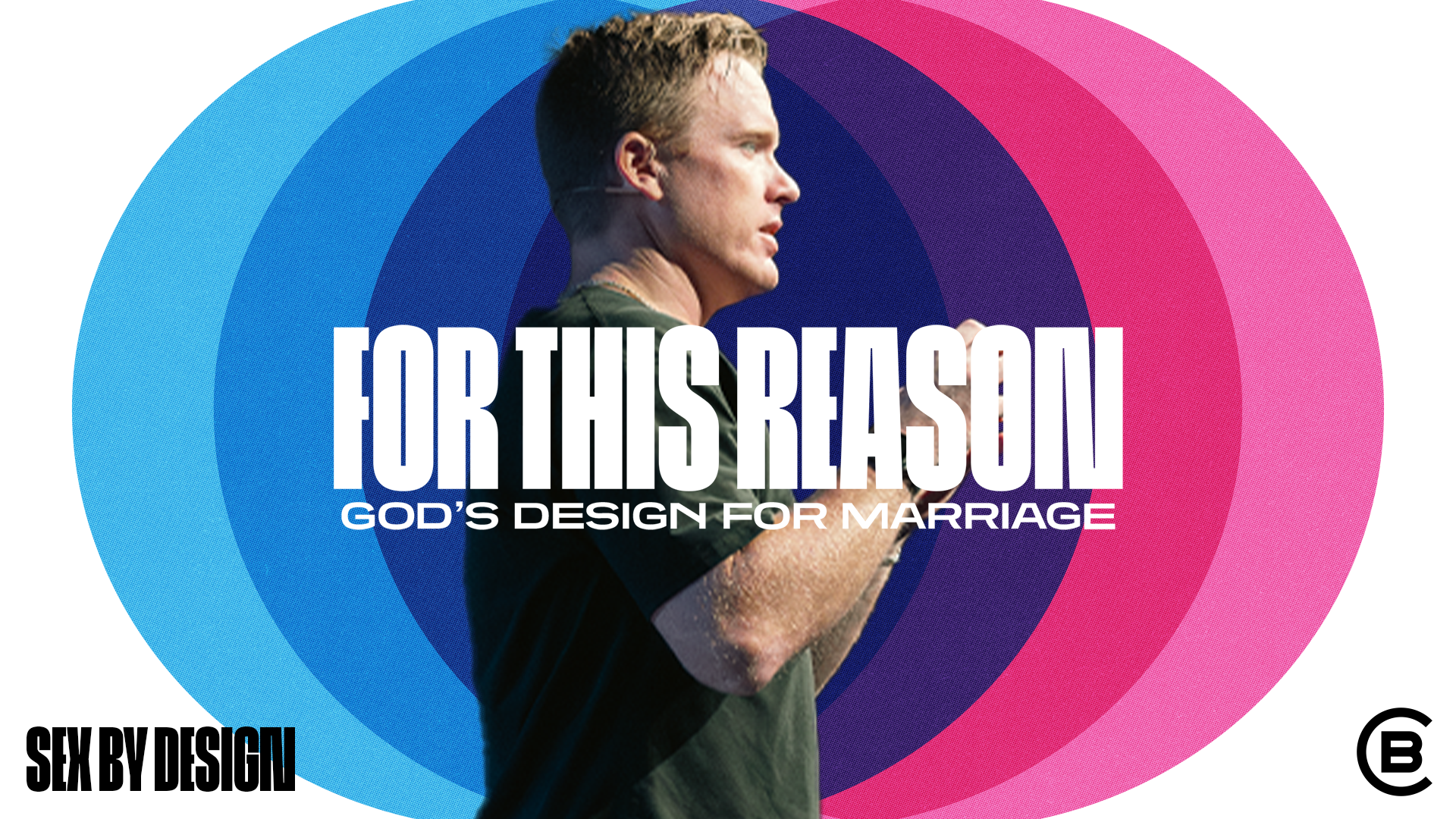For This Reason: God’s Design for Marriage
Sermon Notes
This is the last week in our Sex By Design series! This week we're discussing God's design for marriage and how marriage is the foundational relationship, a commitment, and unity in a lifelong covenant between one man and one woman. The roles of husbands and wives are explored, and we see the importance of sacrificial love and submission between men and women. You will see how marriage reflects Christ's relationship with the church and offers hope for rewriting stories through Christ's love and grace.
This series, Sex By Design, will discuss how we have departed from the perfect God-given design for gender and sexuality. Parents of kids in Middle School and younger, we recommend that you use caution in letting your kids stream this series.
God Designed Marriage To Be The Most Important Human Relationship
The most important human relationship is the marital one, with the foundation of marriage being more significant than other family relationships.
Marriage takes precedence over relationships with parents, children, and others. Husbands and wives are to prioritize each other, collaborating to provide an example of a healthy relationship for their children.
Marriage serves as the foundation for building a home and family. It is meant for procreation and personal growth and sanctification, as it exposes and challenges individuals' selfish tendencies. Jesus emphasized the unity of marriage and its divine significance, discouraging divorce based on God's intent for the marital bond.
God Designed Marriage To Be a Covenant Relationship Between One Man and One Woman
Marriage is characterized as a covenant relationship between one man and one woman, distinct from conditional contracts. A covenant is lifelong and unconditional, while contracts are based on trade and may be terminated.
The modern concept of marriage for love is relatively recent, with historical data showing that marrying for love is a recent trend. This shift from practical considerations to romantic love has influenced the perception of marriage.
Jesus emphasized the significance of marriage as a divinely bonded union, referencing Genesis 2. He highlighted the inseparable nature of the marital bond, asserting that what God joins together, no one should separate.
God Designed Marriage To Have Different Roles for Men and Women
Gender roles in marriage are based on biblical principles, where men and women have distinct roles. Adam's creation as the first worker and the woman's unique role in childbirth set the tone for these roles.
The concept of submission is discussed in the context of mutual submission in the family of God. While historically, submission was seen as a means of dominance, Jesus introduced the idea of equality within submission.
Husbands are called to sacrificially love their wives, mirroring Christ's love for the church. This involves putting her needs before personal preferences and leading by serving. Wives are encouraged to support their husbands and communicate their needs, while both partners are to prioritize each other through dating, praying, forgiving, and pursuing a Christ-centered marriage. For single individuals, the emphasis is on finding a partner who shares a strong relationship with Jesus rather than expecting them to fulfill personal gaps.
Discussion Questions
Have you ever received bad advice that led to unintended consequences or misunderstandings? Share a personal story like the one David mentioned about the wedding invitations. How can seemingly harmless advice impact our decisions and actions?
David discusses the poor understanding of marriage in today's culture, leading to misconceptions and struggles. In what ways have you observed or experienced these misconceptions about marriage? How might these misunderstandings affect dating choices and marital relationships?
David emphasizes that understanding God's design for marriage is crucial for both single and married individuals. How do you think a clear understanding of the purpose and roles in marriage can positively impact one's approach to relationships?
David outlines different roles for men and women in marriage based on biblical principles. How do you personally view the concept of submission in marriage? Do you agree that submission has nothing to do with equality but rather reflects a posture of deference? Why or why not?
David describes marriage as a symbol of Christ's unending love for the church. How does this metaphor enhance your understanding of the purpose and significance of marriage? In what ways can a Christ-centered view of marriage affect how we approach our roles and responsibilities as husbands, wives, and individuals?

